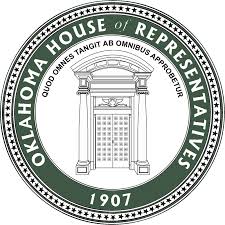Open Transfer, School Funding Formula Changes Pass House
Mike Seals - February 24, 2021 11:09 pm

OKLAHOMA CITY – The House today passed education bills that would allow Oklahoma students to transfer between public school districts at any time and that change the school funding formula to make money follow the student and curb the number of non-existing – or ghost – students currently allowed in the system.
“This is the type of big education reform Oklahomans have overwhelmingly asked for to make our state the best place for families,” said House Speaker Charles McCall, R-Atoka. “Collectively, these reforms build on the historic education investment made three years ago by maintaining and maximizing all money in the common education system while ensuring families retain control of their children’s education decisions. Open transfer ensures equity regardless of geography by benefitting urban and rural areas alike. This is good education policy that works well in all parts of the state. I am proud of the House for delivering on our priority to improve outcomes and empower families in the education system.”
House Bill 2074, by McCall, known as the Education Open Transfer Act, and House Bill 2078, which amends the school funding formula, passed with votes of 77-22 and 68-30, respectively. Both bills now advance to the Senate.
“Parents must maintain the ability to consider another public school if they find their child’s needs are not being met at their current school,” said Rep. Brad Boles, R-Marlow. “House Bill 2074 protects parents’ right to decide the best education pathway for their child while also maintaining a school districts’ local control. I am honored to have played a part in passing this important piece of legislation, and I look forward to seeing the positive impact it will have for Oklahoma’s children.”
Boles said he worked with the Oklahoma State School Boards Association, the State Department of Education and many school superintendents to amend HB 2074 to address many of their concerns. The measure would allow student transfers from one public school district to another at any time during the year. It also would allow receiving districts to determine capacity limits for each grade level at the schools in their district. Posting of transfer data would be required on each district’s website by the first day of each quarter. Numbers also would have to be reported to the State Department of Education and made available to the Office of Educational Quality and Accountability. A district could deny a transfer if a student has 10 or more unexcused absences in one semester, or if the student has violated discipline rules existing in state statute. A student transfer would be limited to two times per school year, and the student could re-enroll at any time in their home district.
Rep. Kyle Hilbert, R-Bristow, authored House Bill 2078.
“This common-sense reform is very simple: It makes money follow the student – no more and no less” Hilbert said. “If we ever want to change our status of being bottom ten in education outcomes, we must quit doing things the way they’ve always been done. The current formula results in students being double or triple counted if they move between schools. This has to end.”
Hilbert said if nothing is done, virtual charter schools still will be paid for students that no longer on their membership rolls once in-person learning resumes. He said using current figures, about $200 million would be spent on 55,000 students that don’t actually exist.
Under HB 2078, school districts would use student counts from the immediate preceding year, and growing districts could use current-year counts for the mid-year adjustment if they choose. It also would give districts greater flexibility in the amount of money they are allowed to carry forward from one fiscal year to the next. This allows districts to continue hiring teachers and staff to meet student needs, but cuts down on paying for students no longer on the rolls.
Both bills now advance to the state Senate. Sen. Adam Pugh, R-Edmond, is the Senate author of HB 2074. Sen. Zack Taylor is the Senate author of HB 2078.



